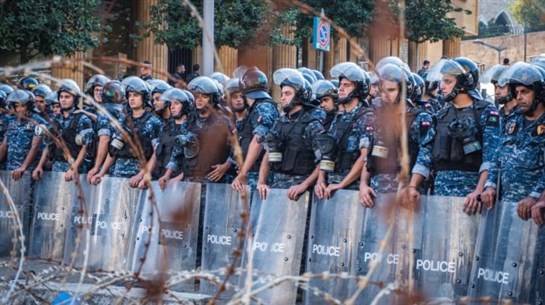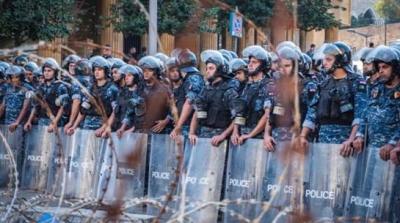The meeting of the Central Security Council yesterday at the Ministry of Interior took on heightened significance as it coincided with numerous international warnings regarding the deterioration of security in Lebanon. Diplomatic sources for "Al-Marktalia" indicate that capitals of decision-making are deeply concerned about an explosion of political complications and the living crisis manifesting as "chaos" in the streets. There is a repeated call for swift action to realize constitutional requirements, primarily the presidential elections, to fortify security and stability.
Among the most prominent warnings came from Washington. U.S. Assistant Secretary of State for Near Eastern Affairs, Barbara Leaf, cautioned that Lebanon is open to all scenarios, including "the complete disintegration of the state." She stated that Lebanese citizens will likely have to endure more suffering before a new government is formed. In a meeting organized by the Wilson Center on U.S. policy in Lebanon this past Friday, moderated by former U.S. Ambassador to Lebanon David Hale, Leaf said, "I see several scenarios; disintegration is the worst among them... security forces and the army may lose control, leading to mass migration. There are many catastrophic scenarios. At the same time, I envision that the parliamentarians themselves will pack their bags and travel to Europe, where their assets are."
She pointed out that "it is not the job of foreign diplomats to go to the parliament and pressure lawmakers to elect a president. I think things will have to get worse before there is public pressure felt by the parliamentarians. We pressure political leaders to do their jobs, but nothing impacts like public pressure, and sooner or later, that will stir again."
These alarming developments have been communicated to the ruling authorities. Based on this context, Parliament Speaker Nabih Berri stated on Monday that "Lebanon may withstand a few weeks, but cannot endure more, and the Lebanese people cannot bear further deterioration."
So far, sources indicate that conditions remain stable, a point reiterated by Interior Minister Bassam Mawlawi yesterday, who described the security situation in Lebanon as "very acceptable." He emphasized the continuation of security measures despite difficult circumstances for security forces and a lack of electricity to perform their duties. In response to a question, he stated, "The caretaker government is carrying out all actions dictated by our conscience, duty, and responsibilities to protect citizens and uphold peace in the country." However, he appealed to officials and citizens to keep political debates restrained to enhance stability.
Nonetheless, according to the sources, the ongoing political stalemate, tensions, and both sectarian and non-sectarian clashes, alongside the continuous economic and financial deadlock with no reforms or agreement with the International Monetary Fund, exacerbate the living conditions. The price of gasoline and the dollar exchange rate have surpassed all ceilings today. This "mix" will inevitably lead to the worst-case scenario on the ground.
While the current political activity is in an uneven race against time and the impending collapse, the sources note: While Lebanese stability is a strongly held international priority, this does not imply that the world will rush to assist Beirut quickly this time, given its preoccupation with numerous crises. This means that widespread chaos will dominate Lebanon for an unknown duration, leaving its people to their fate unless officials act swiftly to strengthen political and economic barriers around the crumbling Lebanese structure.




